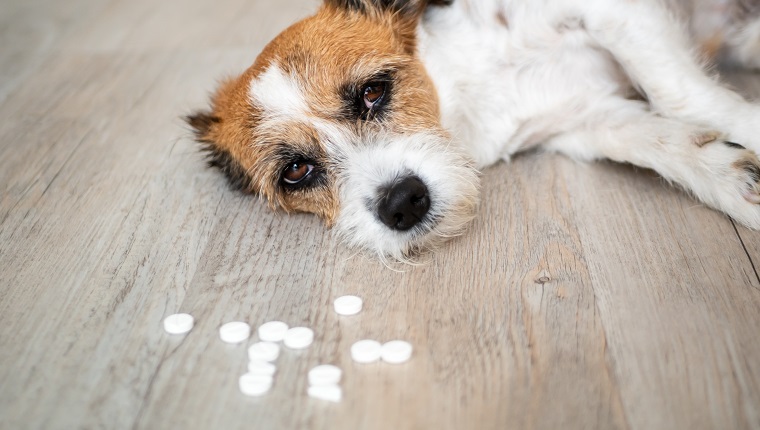Claritin is an antihistamine medicine that dogs can take under veterinary supervision to treat issues including a range of allergic reactions, such as those that appear due to insect stings and bites. It’s a brand name for the generic medicine loratadine. If your vet recommends this medicine for your dog, then you must make sure to closely follow their instructions for the correct and safe dosage and frequency. Here’s what you should know about the uses, dosage, and side effects of Claritin for dogs.
Uses of Claritin for dogs
Claritin is an antihistamine medicine, which means it works by blocking the effects of histamine in the body. It can help control a range of allergic reactions that dogs might suffer from, including those from insect stings and bites. It comes in tablet and liquid form, and you can purchase it over the counter without a prescription.
You must consult your veterinarian before giving your dog any medication, even over-the-counter drugs.
Dosage of Claritin for dogs

Although you can find guidelines online for typical Claritin dosage for dogs, it must not replace your veterinarian’s advice for your pet. We do not recommend using online dosage calculators without speaking to your vet.
Like many other drugs, vets generally prescribe Claritin for dogs depending on their body weight. Your veterinarian will advise you on the precise dosage of Claritin for your individual dog, along with the number of times a day you must administer it.
If your vet recommends this medication, your dog must complete the full course. You must adhere to the dosage amount instructed.
Side effects of Claritin for dogs
One of the benefits of Claritin over other antihistamines, like Benadryl, is that it’s less likely to make your dog feel overly drowsy. However, in some cases, you might notice your dog seems a little more relaxed. Some other side effects could include stomach issues or dry mouth.
As always, if you notice any sort of allergic reaction when administering the medication to your dog, make sure to contact your veterinarian immediately.
If you suspect your dog took too much of the medication and may be suffering from an overdose, then you must contact your veterinarian straight away.









